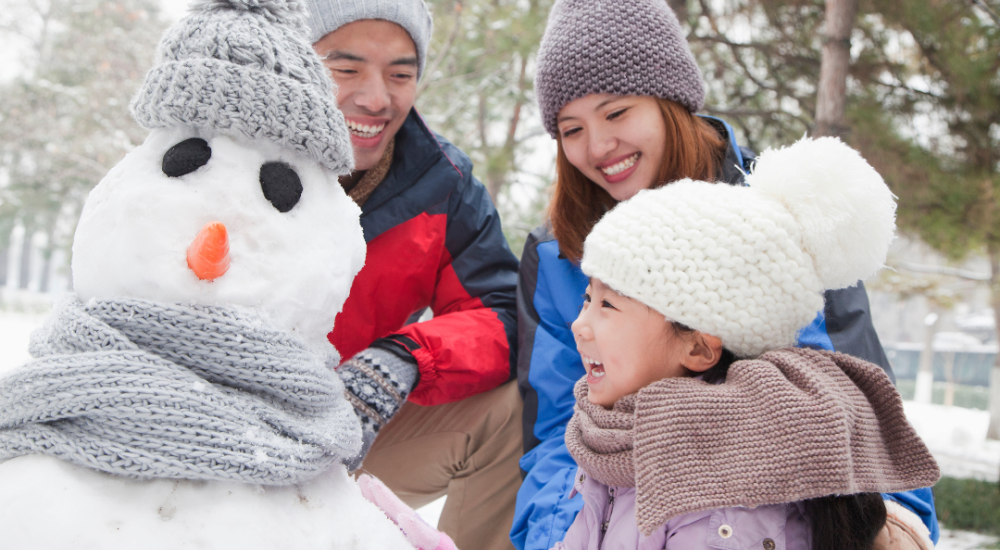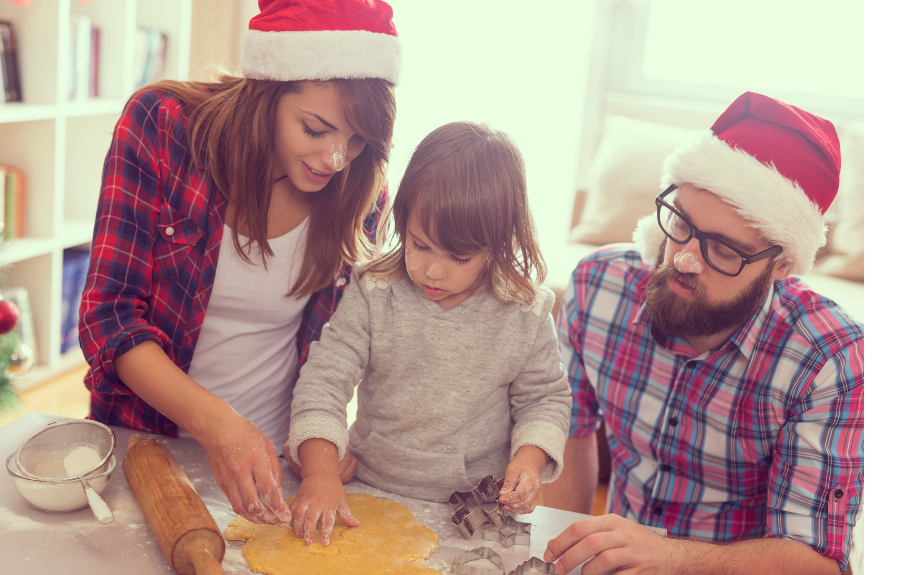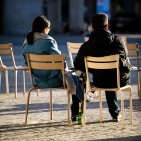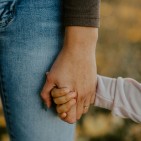
Many parents and caregivers are wondering what to do about the holidays this year. Nobody wants to disappoint their kids, especially in the midst of so many other losses and disappointments. So how can we prepare to follow public health guidelines for a safer celebration without dashing holiday spirits?
Make a plan. Sit down together as a family and decide how to celebrate and connect with relatives and other loved ones safely, taking into account that the bulk of connecting will likely need to be done online. The plan shouldn’t be driven by fears of upsetting kids or extended family members. Older kids and teens can be included in family decision-making. If they are part of solving the problem, they are more likely to feel helpful and want to join in the festivities.
Embrace the mixed feelings. Even with the best planning, many kids and parents will feel some sense of loss this year. If you are struggling financially more than ever before, concerned for loved ones’ health or finding it hard to light any kind of spark, then so be it. If you can’t see your grandma or friends or play hockey and think it’s the pits, you’re absolutely right. Pressuring yourself to feel merry when you feel miserable only adds to the pain. Take the stance that nobody can “ruin the holidays” this year. In 2020, we can drop the idea of the “perfect holidays” altogether, and maybe we’ll never want that idea back.
Talk with kids and teens about their feelings. Many of us will want our kids to “see the silver linings”, but before shining a light on the positive, parents can acknowledge that kids might be feeling sad or disappointed or angry about the pandemic wreaking havoc on holiday plans and traditions. We can listen non-judgmentally and show our acceptance. Other kids may be as excited as ever about the holidays, and we can share in their joy. Every family member may feel a little different.
Remember that less is more. Pushing ourselves to spend money we don’t have isn’t likely to make our kids happier. They can understand that everything is a little different right now. Children don’t need much to be happy. They may enjoy simple activities like decorating, baking, crafting or playing in the park just as much as any exotic travel. Less is also more when it comes to obligations. Many of us may been holding in our stress at school and work for weeks, and the holidays can be an important time to reset. We need to go back to basics of caring for our mental health and wellbeing, like making sure we’re getting enough sleep and time outdoors in nature. We need deep rest and play. The usual to-do lists, cards and cooking may be restful for some, but others might need to pause and spend time just cuddling pets, walking outdoors with a friend or wrapped in a blanket with a warm mug of tea. There is no one right way to rest and replenish. We all have different ways to fill our cups.
Balance needs for connection and space. Family connection can be very nurturing and supportive, yet as  families may be spending many more hours together again in close quarters, we also need to allow each member of the family at least some of the space they need. Parents and caregivers can map out a way to get some mental rest for themselves, even if only 3 minutes at a time, especially if we’re starting to get overwhelmed or overly irritated. And for those caring for a child or teen with significant needs or young children, even a 3-minute break isn’t always possible. In these situations, having someone to call on for emotional support may be a lifeline. It’s also normal that teens need their physical and mental space. Talk with them about their needs ahead of time, so there’s a way to balance their involvement in family life with their alone and social time. This will lead to far less conflict.
families may be spending many more hours together again in close quarters, we also need to allow each member of the family at least some of the space they need. Parents and caregivers can map out a way to get some mental rest for themselves, even if only 3 minutes at a time, especially if we’re starting to get overwhelmed or overly irritated. And for those caring for a child or teen with significant needs or young children, even a 3-minute break isn’t always possible. In these situations, having someone to call on for emotional support may be a lifeline. It’s also normal that teens need their physical and mental space. Talk with them about their needs ahead of time, so there’s a way to balance their involvement in family life with their alone and social time. This will lead to far less conflict.
Practice kindness and gratitude. Families can think of ways to help others in the community, like donating to charities and checking on vulnerable neighbours. Those in self-isolation need our phone calls and drop-offs and to know they aren’t alone. New traditions may be formed, maybe some that are even more in line with our deeper values. We can list what we do still have in our lives, and what we’re each grateful for. We can tap kids’ natural creativity to brighten things up. Some families have hung lights early, while others are making their own songs and videos and games. Celebration can happen even during the darkest of days, as many of our traditions teach us. When all is said and done, our kids may even develop a greater appreciation for what they have, and greater resilience for the future.
Reach out for support when needed. We know that many youth and families may struggle during the holidays and throughout the winter. If you are noticing consistent and worrisome changes in your child’s mood or behavior, then don’t hesitate to reach out for support. BC Children’s Kelty Mental Health Resource Centre (www.keltymentalhealth.ca) are available to provide guidance and help you find resources. Youth 12-24 and their parents can visit www.foundrybc.ca. Family doctors' offices are usually open on all but statutory holidays and so are local Child and Youth Mental Health Intake Clinics. Crisis Lines and Emergency Rooms are staffed 24-7.
Stay hopeful. Health care professionals around the province are still here, every day, ready to help. We know this pandemic will end one day in the not-too-distant future. We can hold onto the hope for our kids, share family stories of good times past and overcoming obstacles and imagine together what we can all look forward to in the future. One day, our kids will be the ones telling the story of how they got through COVID-19 and the holiday season of 2020. It will undoubtedly be the time spent with their families they remember most of all.
still here, every day, ready to help. We know this pandemic will end one day in the not-too-distant future. We can hold onto the hope for our kids, share family stories of good times past and overcoming obstacles and imagine together what we can all look forward to in the future. One day, our kids will be the ones telling the story of how they got through COVID-19 and the holiday season of 2020. It will undoubtedly be the time spent with their families they remember most of all.
Get immediate support for a...
- Suicide crisis: 1 800 SUICIDE (1 800 784-2433)
- Mental health issue: 310-6789 (24 hours)
- Medical emergency: 911
These online resources can also help:







